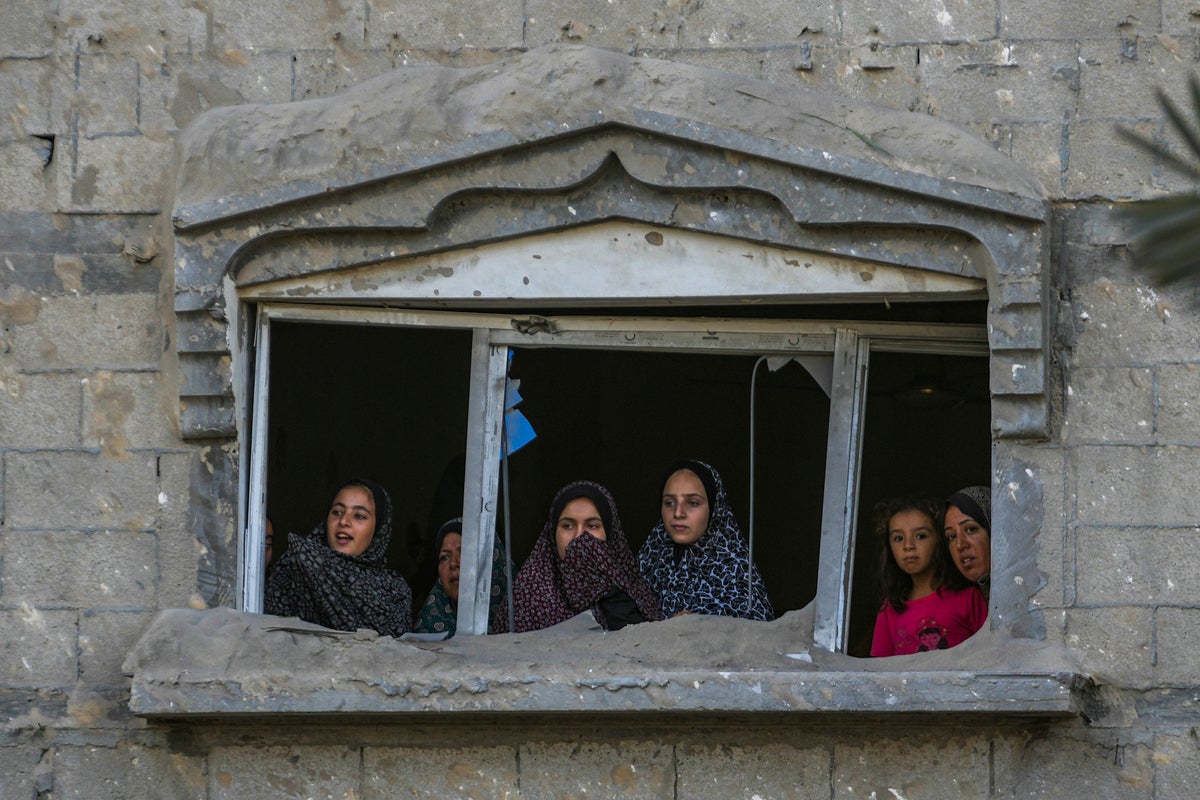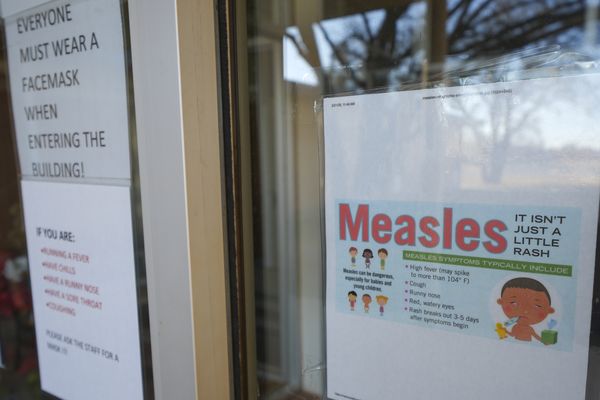
Your support helps us to tell the story
As the escalating conflict between Israel and Hezbollah grabs global attention, Palestinians in Gaza wonder: What will become of their plight after nearly a year of devastating war?
They are petrified that international concern has been diverted, and that a dark possibility looms: abandonment.
The families of Israeli hostages held in Gaza have the same worry.
Nezar Zaqout, one of some 1.9 million Palestinians forced to flee their homes since the Israel-Hamas war broke out, said he fears the fighting across the Israel-Lebanon border will overtake interest in the abysmal living conditions in Gaza and efforts to negotiate a cease-fire.
“We have become completely forgotten," said Zaqout, who is living in Khan Younis after fleeing from Gaza City months ago. "There is no news about us in the media.”
Palestinians fret the miserable conditions in Gaza will become permanent. Ninety percent of the population is homeless, with hundreds of thousands in unsanitary tent camps struggling to find food and clean water.
“A year on, and no one cares about us. Every day there is bombing, every day there are martyrs, and every day there are injuries,” said Saadi Abu Mustafa, who fled Khan Younis to Muwasi, a sprawling tent camp along Gaza's southern coast.
Since Hamas launched the war on Oct. 7, Israel's retaliatory invasion of Gaza has killed more than 41,000 Palestinians and wounded more than 95,000, according to Gaza's Health Ministry, which does not differentiate between civilians and militants, but says over half of the dead were women and children.
Months of intense air and ground assaults have razed entire housing blocks to the ground; researchers who study satellite imagery estimate nearly 60% of buildings in the Gaza Strip have likely been damaged since the start of the war.
Israel vowed to destroy Hamas after Oct. 7, when its militants killed some 1,200 people and abducted 250 others. While it has been badly hobbled, the militant group backed by Iran remains in power.
Israel’s government says about 70 of the 100 hostages are still presumed alive. Their families dread the government's focus on ending the war is fading.
“My biggest concern is that all the public’s attention and the world’s attention would be gone to the north,” said Udi Goren, a relative of Tal Haimi, an Israeli killed on Oct. 7 and whose body was taken to Gaza. “Eventually the hostages will just be completely left alone without anyone to bring them out.”
As the threat of all-out-war between Israel and Hezbollah has risen, Israel has drawn down its troop presence in Gaza to move key units to its northern border with Lebanon. Still, thousands of soldiers remain in Gaza, carrying out sporadic raids and preventing displaced Palestinians from returning home.
Daily strikes have continued in Gaza, too. An Israeli strike on a school-turned-shelter in northern Gaza Saturday killed at least 22 people and wounded 30 others, mostly women and children, according to the Gaza health ministry.
Recent rains have made already difficult living conditions in the Israeli-designated “safe zone” of Muwasi unbearable. On Sunday, children living there walked barefoot through mud that reached above their ankles, while men dug through the muck to salvage precious canned goods and furniture.
“The entire kitchen in which we prepare food was filled with water. We did not know what to do. This is the beginning of winter. What will happen in the coming days?" said Rana Goza’t, a mother displaced from Gaza City.
Others lamented water-logged mattresses and pleaded for international groups to help keep attention on the humanitarian crisis in Gaza.
“We hope that all peoples care about us and see where we have reached,” said Enas Kollab, who relocated to Muwasi from northern Gaza.
A flurry of diplomatic activity to broker an agreement between Israel and Hamas appears to have subsided, with each side accusing the other of negotiating in bad faith and making untenable demands.
Israeli Prime Minister Benjamin Netanyahu says Israel must keep troops in two areas of Gaza to prevent Hamas from rearming. But Hamas has said it will not agree to any deal that allows Israeli troops to remain.
Hopes for a deal have further dimmed as the United States, a key mediator in the talks, appears to be losing the ability to influence its closest ally. In a trip to the region last week, Secretary of State Antony Blinken visited only Egypt because U.S. officials believed having him travel to Israel in support of a deal might cause Netanyahu to say something that would undermine mediation efforts.
No clear vision has emerged for postwar Gaza — or who will guide and govern that process — but one thing is clear: Rebuilding the territory will take decades. The U.N. estimated this summer that just removing some 40 million tons of rubble would take 15 years.







